Shows
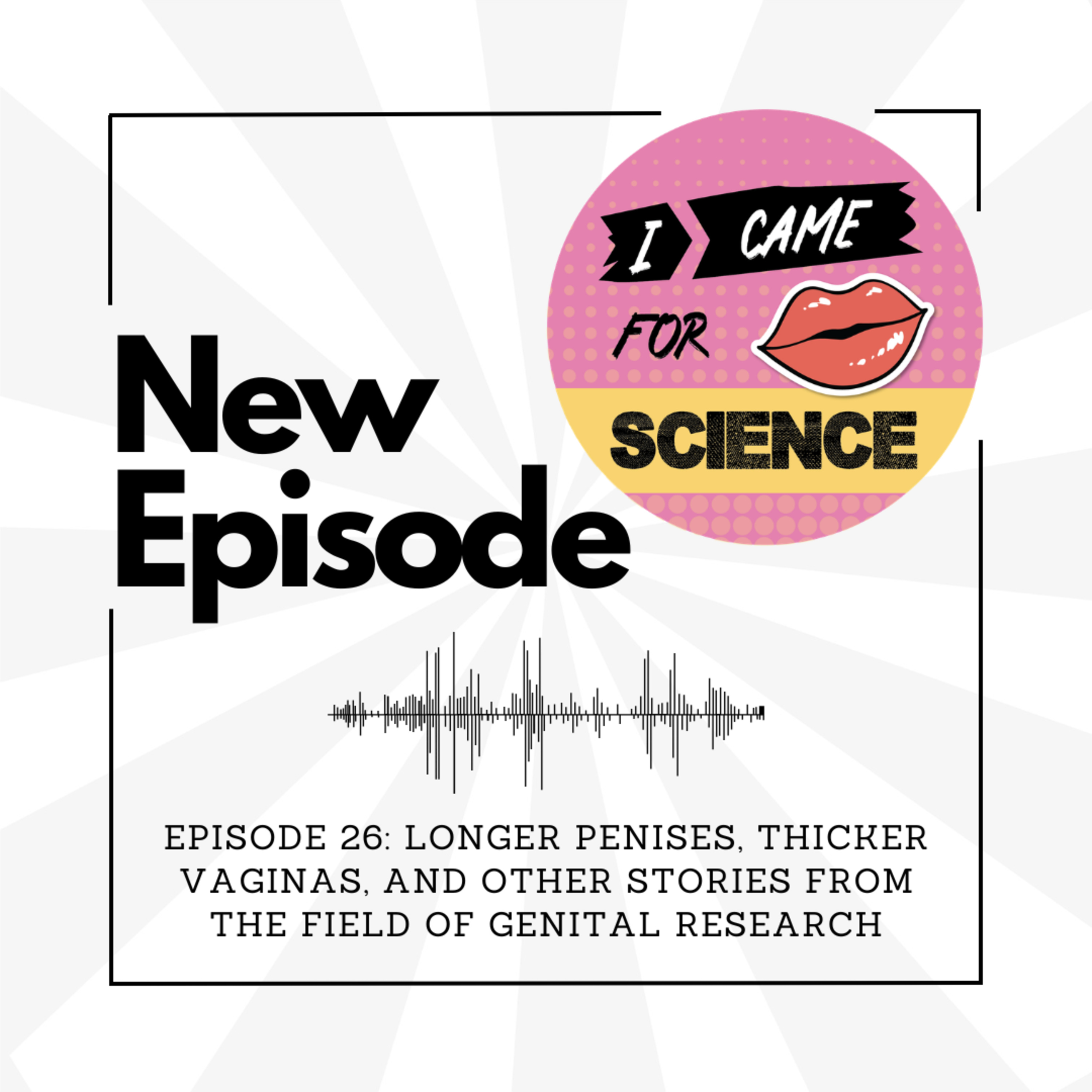
I Came For ScienceLonger penises, thicker vaginas, and other stories from the field of genital researchWelcome back to Season 5 of I Came For Science. We launch this season with an interview with Patty Brennan, the OG of genital co-evolution research and so much more. In this episode, we talk about her research, her science advocacy, and how her identity as a Latina in STEM has shaped her science and led to incredible new questions and discoveries that no one before her had thought to look into.
2026-02-2432 min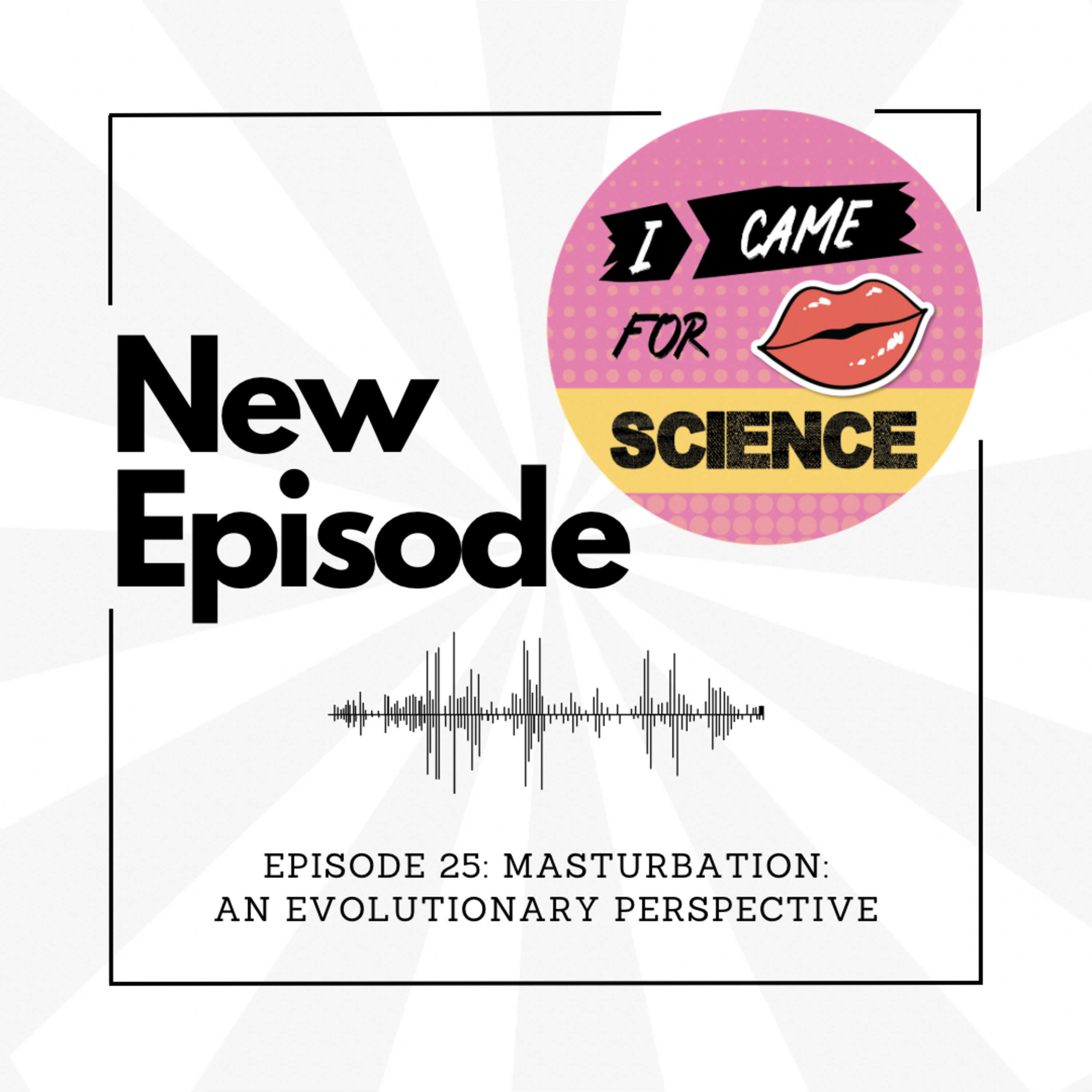
I Came For ScienceEpisode 25: Masturbation: An Evolutionary PerspectiveIn the spirit of normalizing talking about topics related to sex, we give you "Masturbation: An Evolutionary Perspective". In this episode, Laura interviews evolutionary biologist Matilda Brindle about her research in which she uses evolutionary methods to test hypotheses about when and why masturbation evolved. Matilda shares with us how she came to this area of research, what is known about masturbation in other animal species, what her research has unveiled about the topic, and how her work has been received by colleagues and the general public. Happy listening!
2025-12-2334 min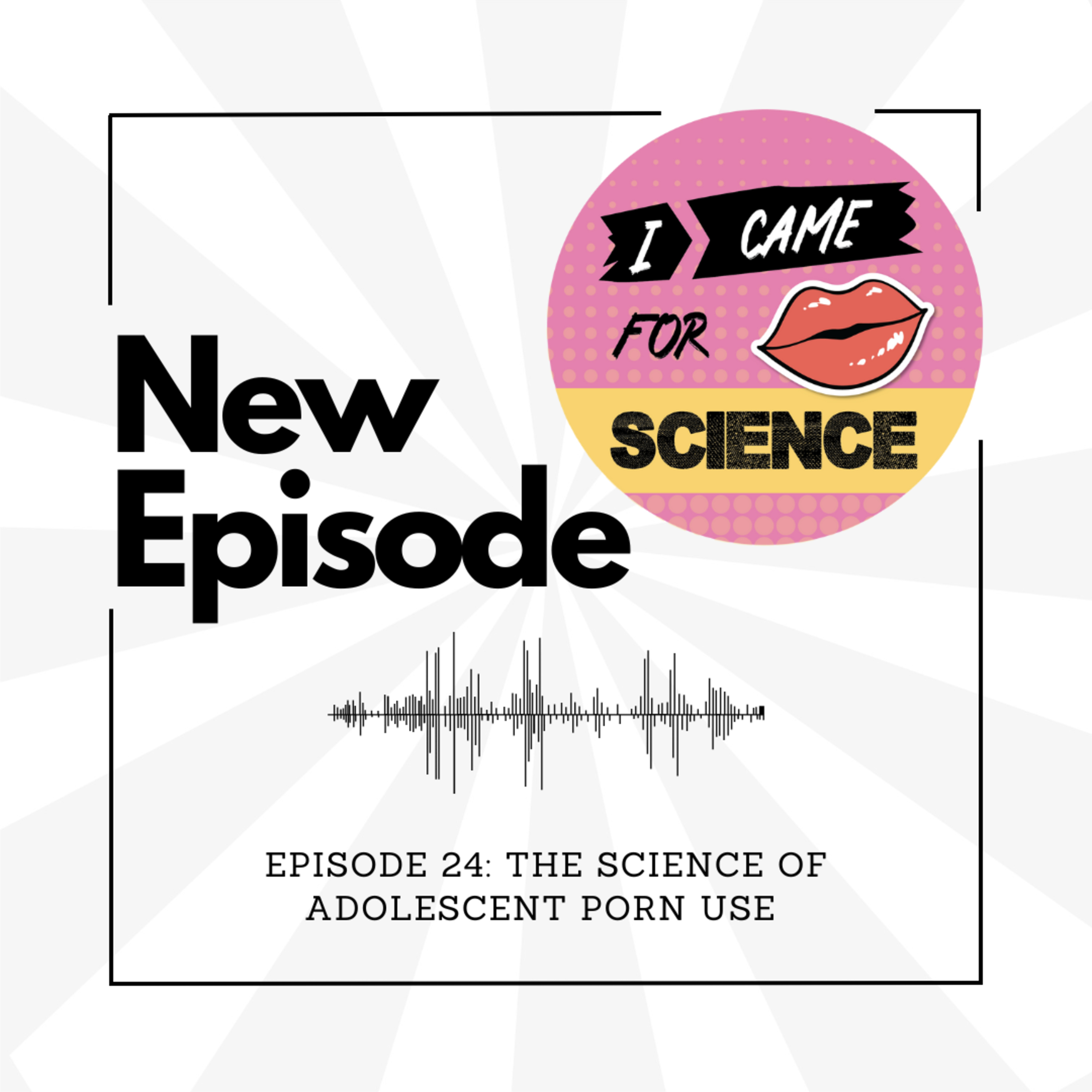
I Came For ScienceEpisode 24: The Science of Adolescent Porn UseMost tweens and teens have been exposed to porn, whether intentionally or unintentionally. What are the impacts of porn use on adolescents? How should parents or guardians respond to adolescent porn use? These are some of the important questions being addressed by our guest in this episode, Dr. Megan Maas. Laura and Megan discuss the challenges of studying adolescent porn use and what has been found in this area so far. More resources for parents and guardians about porn use, sex education, and more is available at her website: https://www.meganmaas.com/
2025-11-2128 min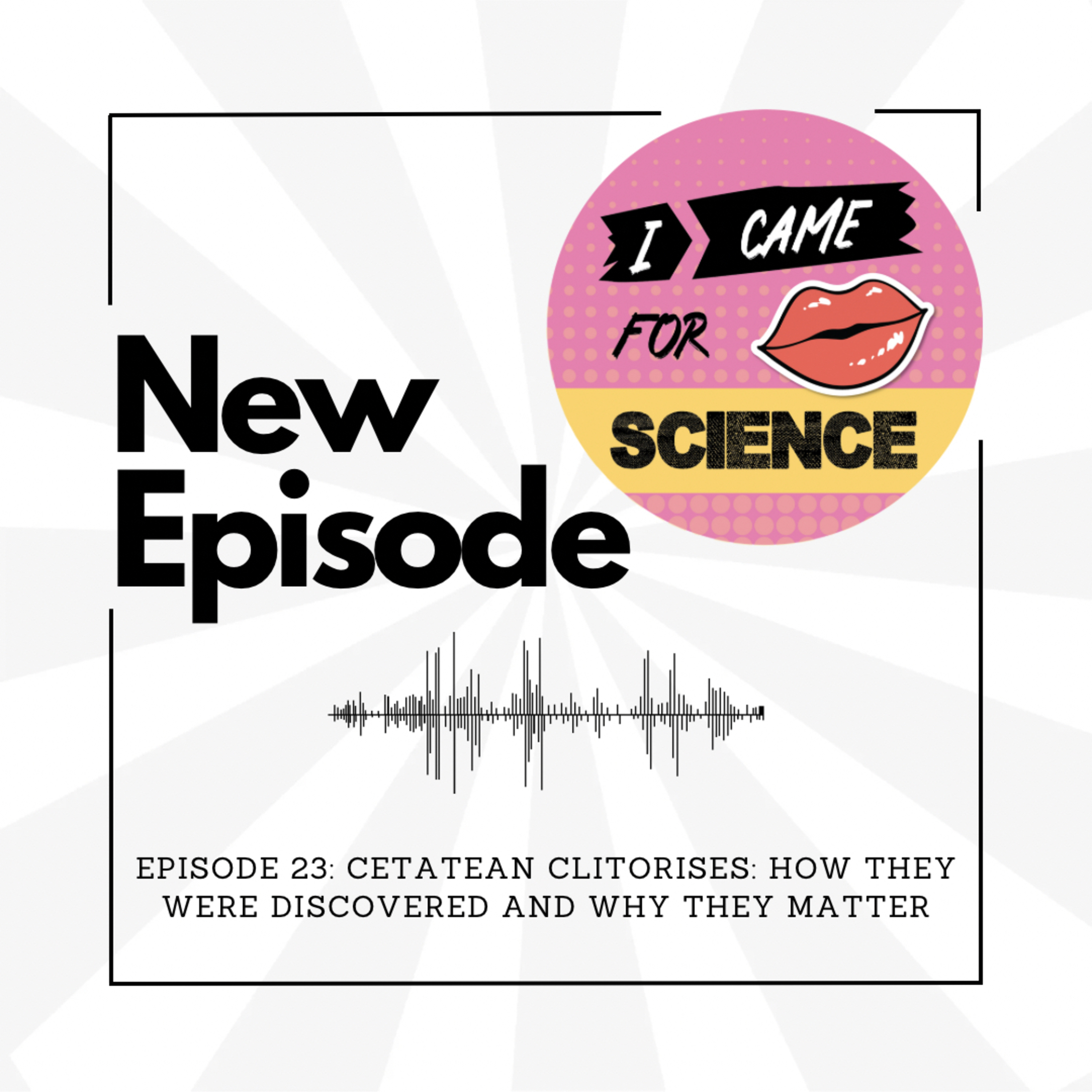
I Came For ScienceEpisode 23: Cetacean Clitorises: How they were discovered and why they matterAfter Episode 22 where we discussed the diversity and evolution of male genitalia, we had lots of questions. One thing we were left wondering was why we know less about female genitalia and what is the current state of this field. To dig into this topic more, Laura interviewed Dara Orbach who studies the reproductive biology of cetaceans with a focus on understanding the genitalia of both males and females, and how they interact. Together with her collaborators, Dara's work has broken new ground on our understanding of the functions of cetacean clitorises.
2025-11-0533 min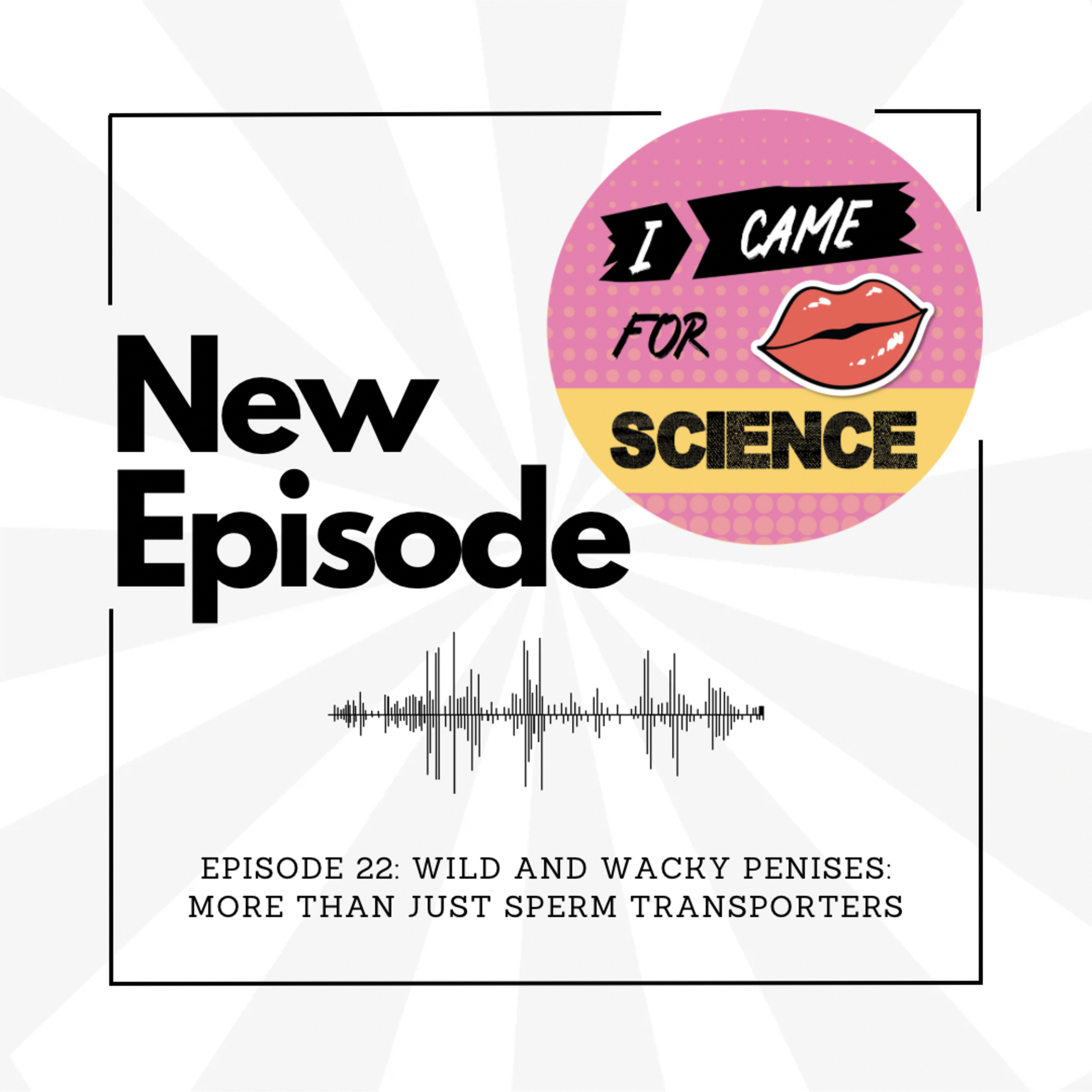
I Came For ScienceEpisode 22: Wild and Wacky Penises: More than just sperm transportersDid you know that animal penises come in a wide variety and that some animals have bones in their penises? In this episode, Laura talks with biologists Dave Hosken and Matt Dean about the wide variety of penises found in different animal species. We discuss some of our favorite examples and then explore hypotheses for why such variation evolved. Matt shares his lab's research findings on the evolution, function, and development of the penis bone (a.k.a., the baculum).
2025-10-1636 min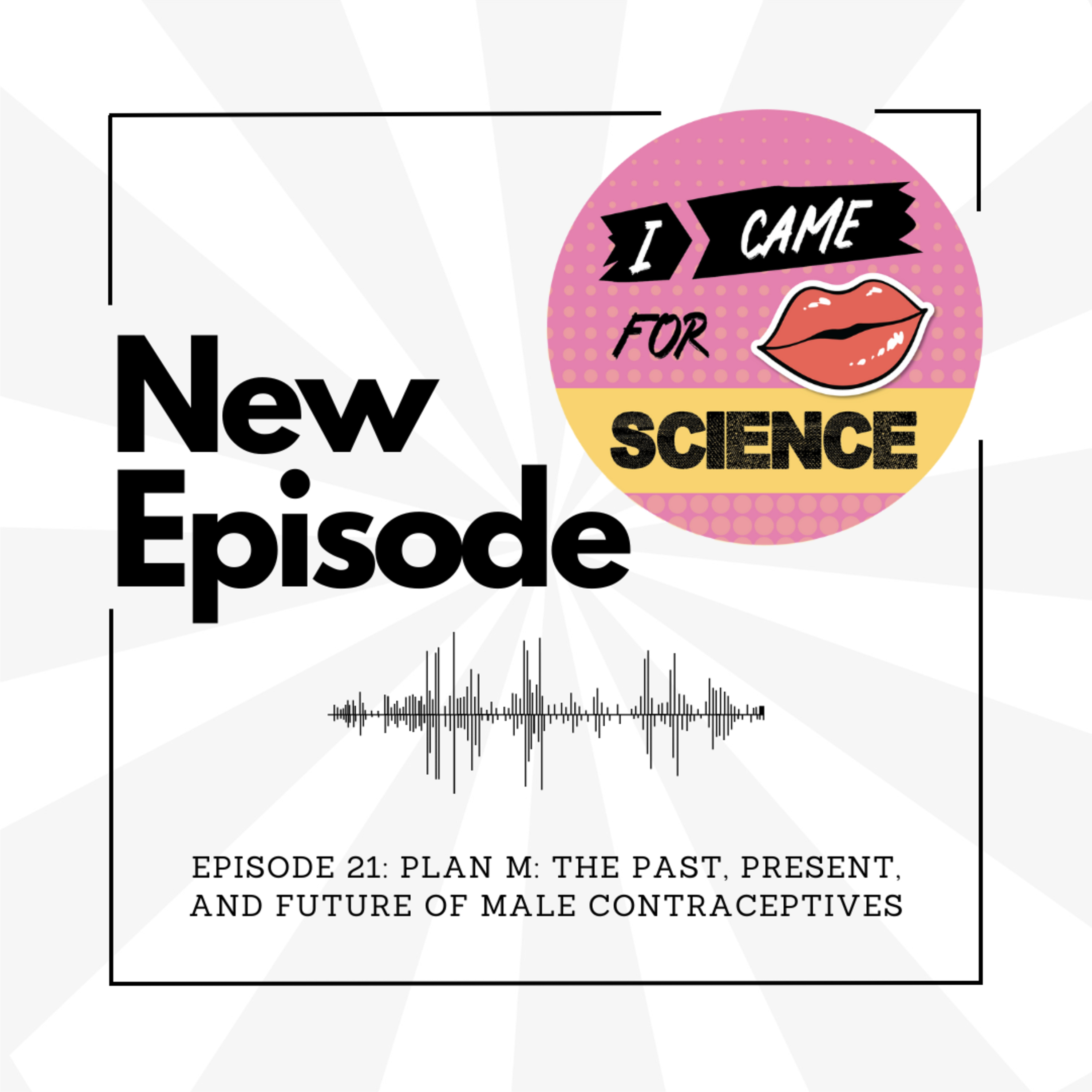
I Came For ScienceEpisode 21: Plan M: The Past, Present, and Future of Male ContraceptivesDid you ever wonder why there are not more male contraceptives? In this episode, team member Daphne Trillana asks the question "where are the promised new male contraceptives"? Laura and Daphne discuss this issue and then Laura talks with two experts in the field: Logan Nickels of The Male Contraceptive Initiative and Dr. Stephanie Page, an endocrinologist who develops and studies new methods of male contraception. Together, they explain the history of the development of male contraceptives, current research and promising directions, and what the future of male contraceptives looks like.
2025-09-1941 min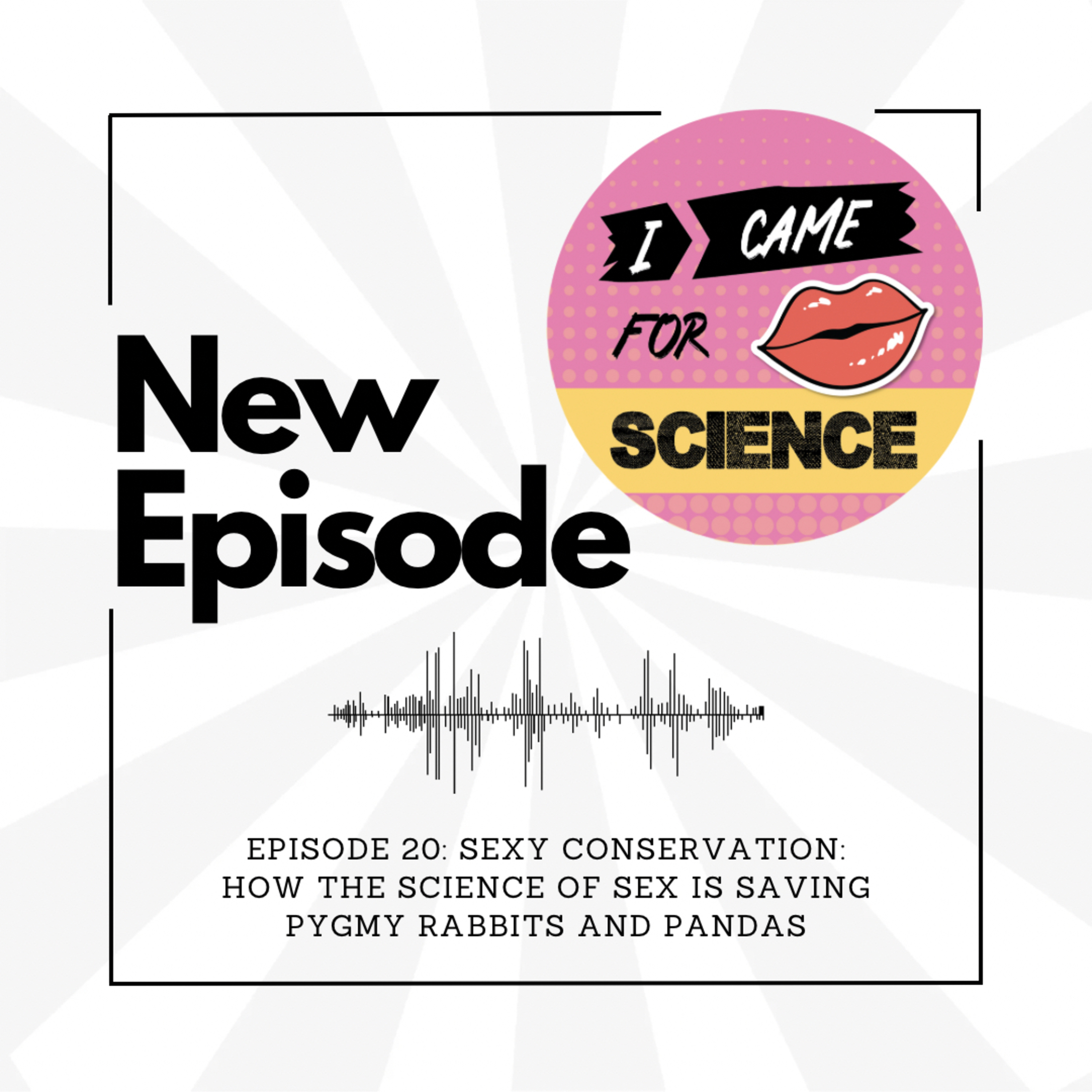
I Came For ScienceEpisode 20: Sexy conservation: How the science of sex is saving pygmy rabbits and pandasWelcome back to Season 4 of I Came For Science. In this episode, Laura interviews Dr. Meg Martin about her research on conservation breeding. Conservation breeding is a method of increasing the populations of endangered and threatened species by having them breed in captivity and then releasing the resulting offspring into the wild when they are old enough. Traditionally, breeding pairs were chosen to maximize the genetic diversity of the population. However, until relatively recently, the important role of mate choice was not considered. Dr. Martin's work has changed this approach to use the science of sex to improve reproductive...
2025-09-0132 min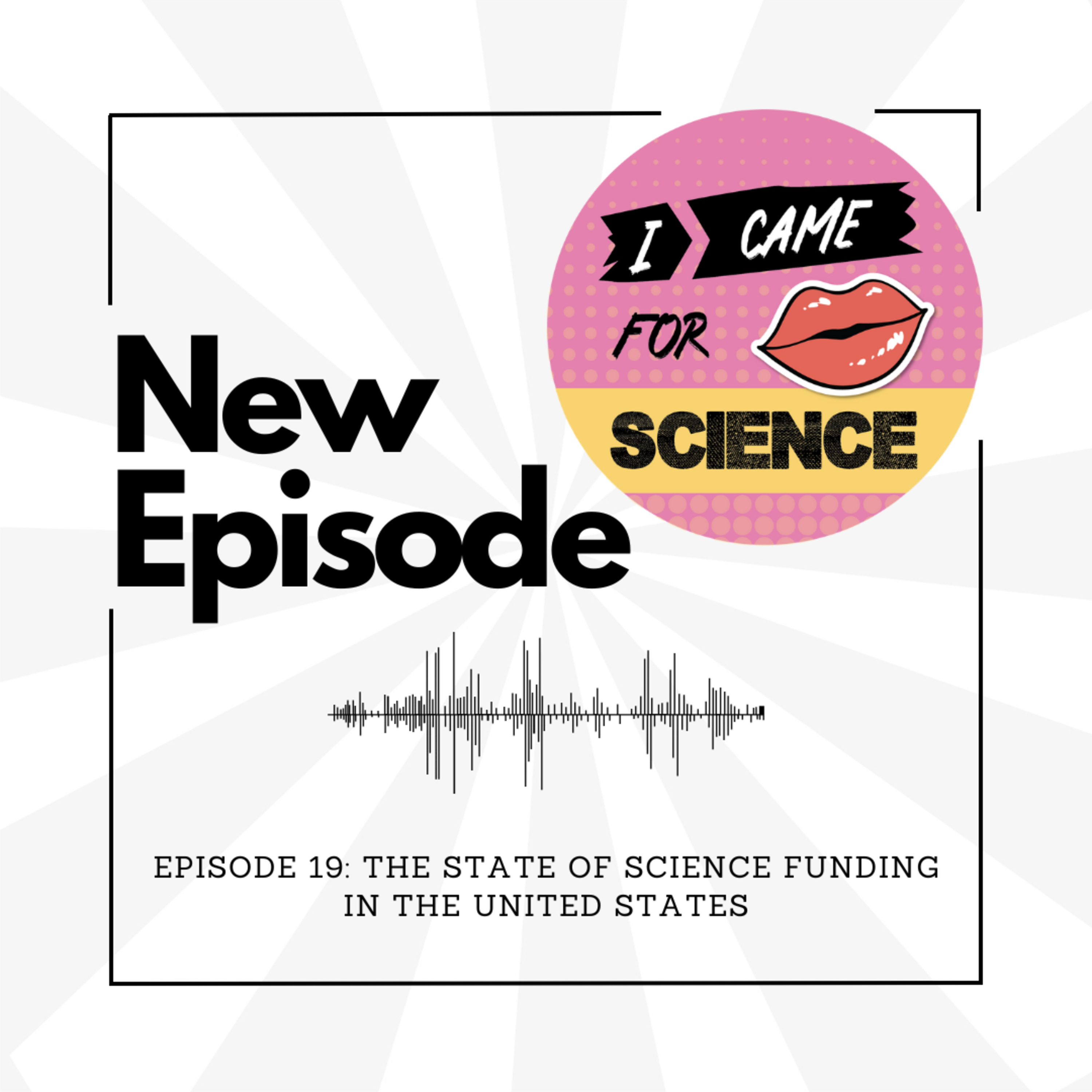
I Came For ScienceEpisode 19: The State of Science Funding in the U.S.In this episode, we embrace a different meaning of our title "I Came For Science" by standing up for science funding. One of our production team members, Lain Patton, interviews our host, Laura Sirot, about how science funding works in the U.S. and what the recent changes mean for the current and future states of science, scientists, and the general public.
2025-05-1530 min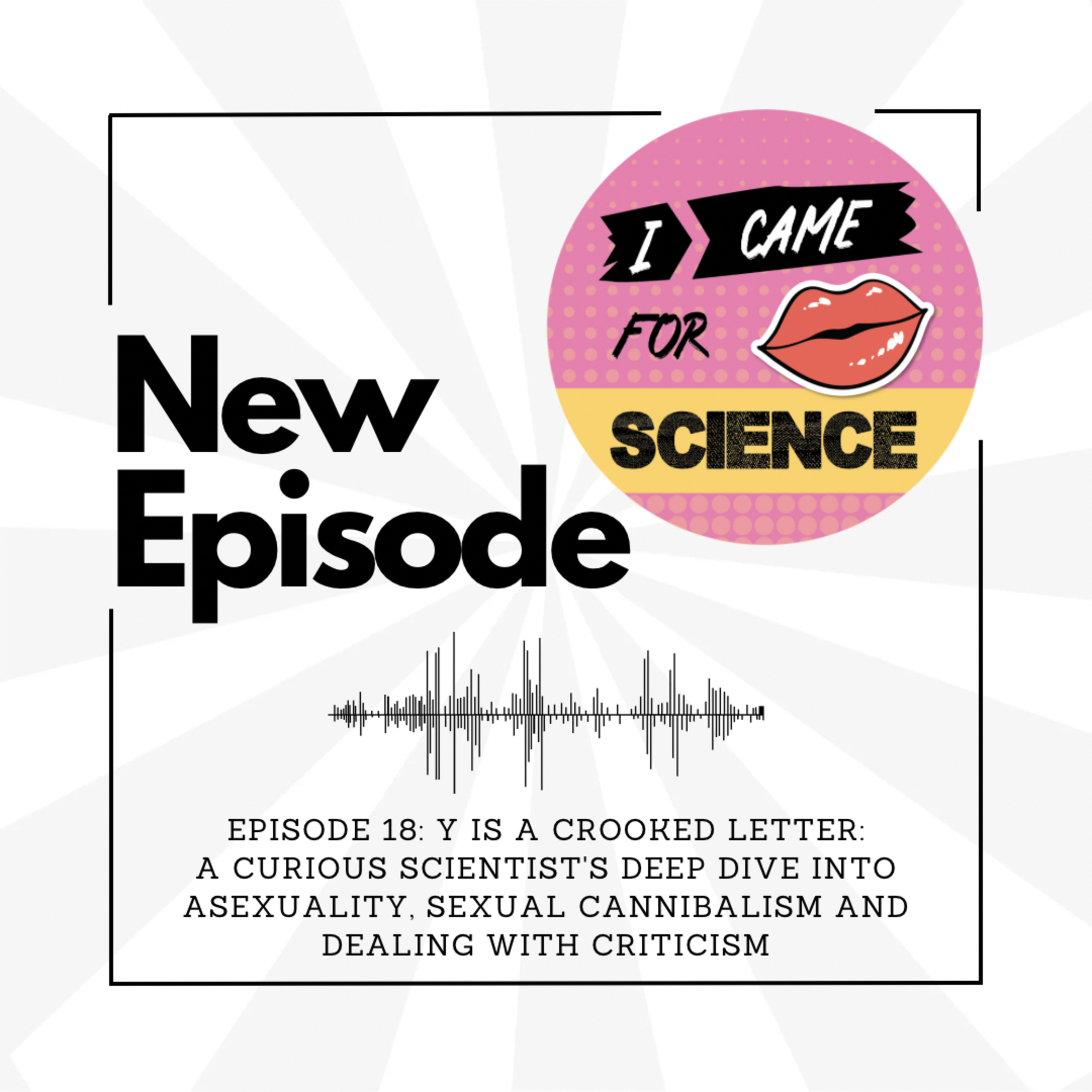
I Came For ScienceEpisode 18: Y is a crooked letter: A curious scientist's deep dive into asexuality, sexual cannibalism and dealing with criticismWere you that kid who always kept asking "But, why?" after adults in your life answered questions. Or, do you know a kid like that? Our guest for this episode, Dr. Nathan Burke, was that kid. His parents and teachers would get annoyed by all his questions until he found "his people" among evolutionary biologists. Evolutionary biologists persistently ask "But, why" questions about the way the biological world works. In this episode, Dr. Burke explains how his questions led to new hypotheses about asexuality, sexual cannibalism, and, even, dealing with criticism.
2025-04-1135 min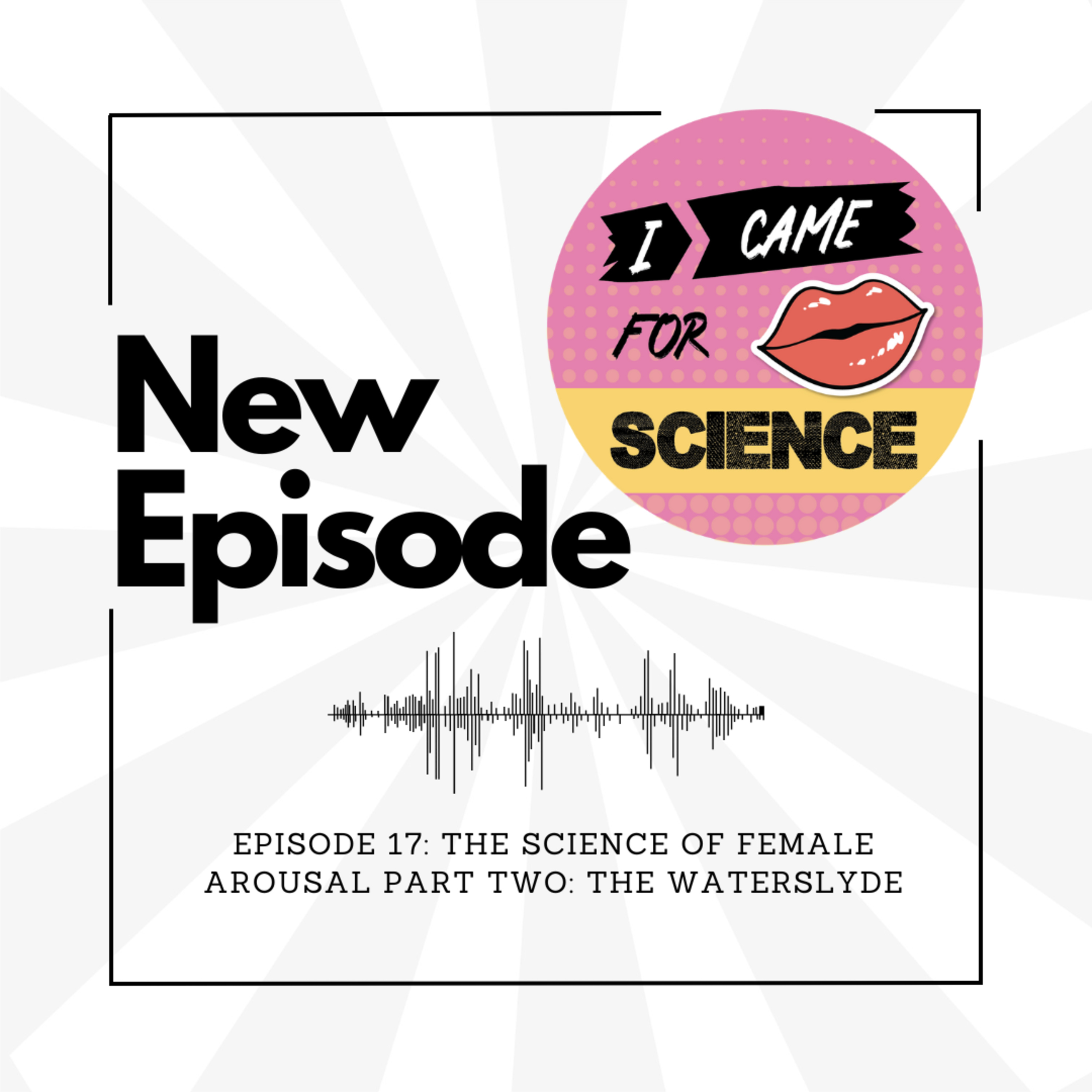
I Came For ScienceEpisode 17: The Science of Female Arousal, Part 2: The WaterSlydeIn this episode, we continue exploring the science of female arousal. Laura interviews Maureen Pollack, a mompreneur. She is the inventor of the WaterSlyde, a water-based device designed for female pleasure. Maureen explains how she developed the idea and the prototype for the WaterSlyde and what she learned about female arousal, the sex toy industry, and, even, plumbing along the way! It is a delightful story of self-discovery that has led to many satisfied customers.
2025-03-2028 min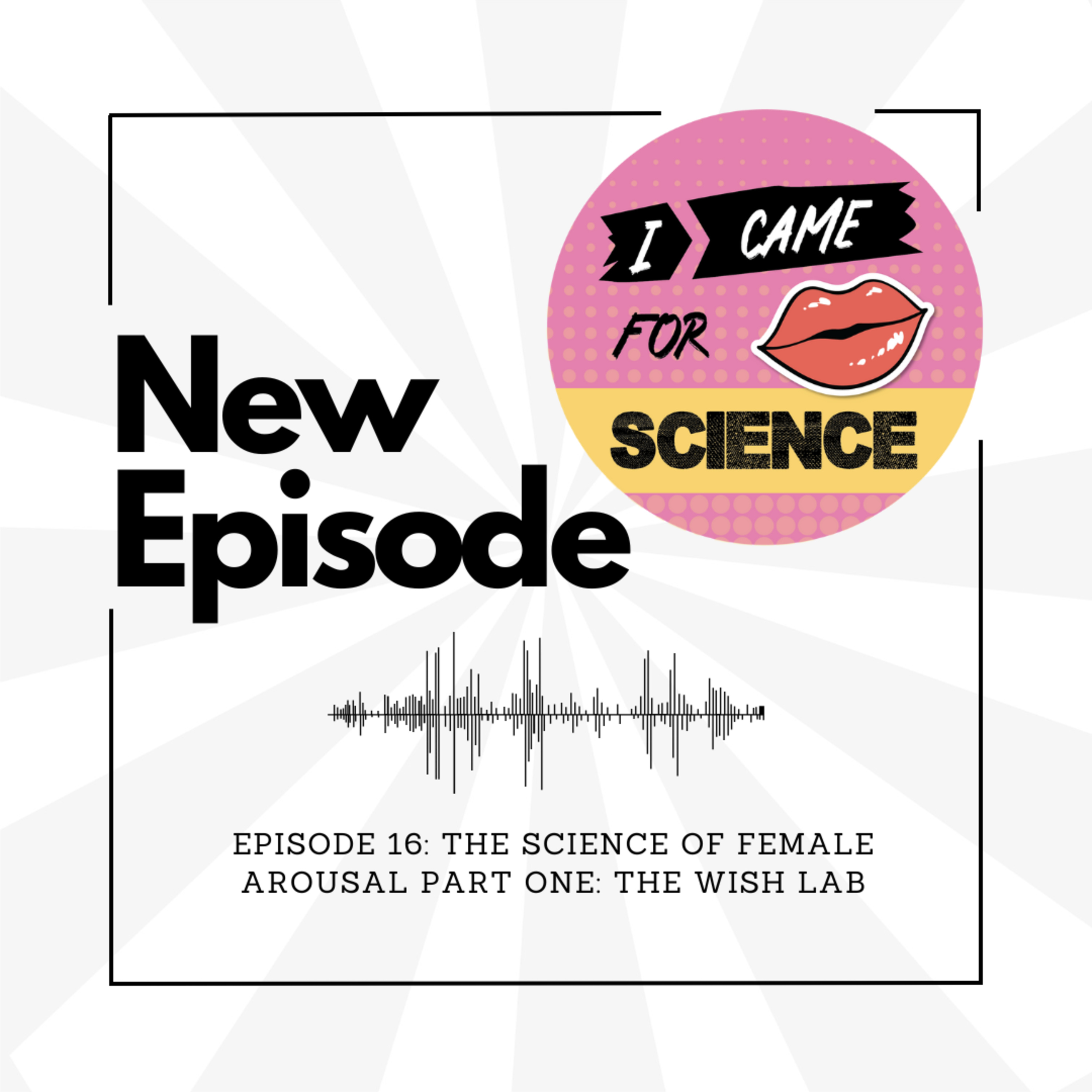
I Came For ScienceEpisode 16: The Science of Female Arousal, Part 1: The WISH LabWe are now embarking on an exploration of the science of female arousal. In the first episode of this series, Laura interviews her former student and current colleague, Harper Jones. Harper is pursuing a PhD in clinical psychology in the Women's Integrative Sexual Health (WISH) Lab. In this episode, she explains the methods that the WISH lab uses to measure arousal and what research questions can be addressed with these methods. She continues on to discuss her research on the reasons that people use alcohol or drugs in the context of sexual activity, especially for people with previous sexual...
2025-03-0831 min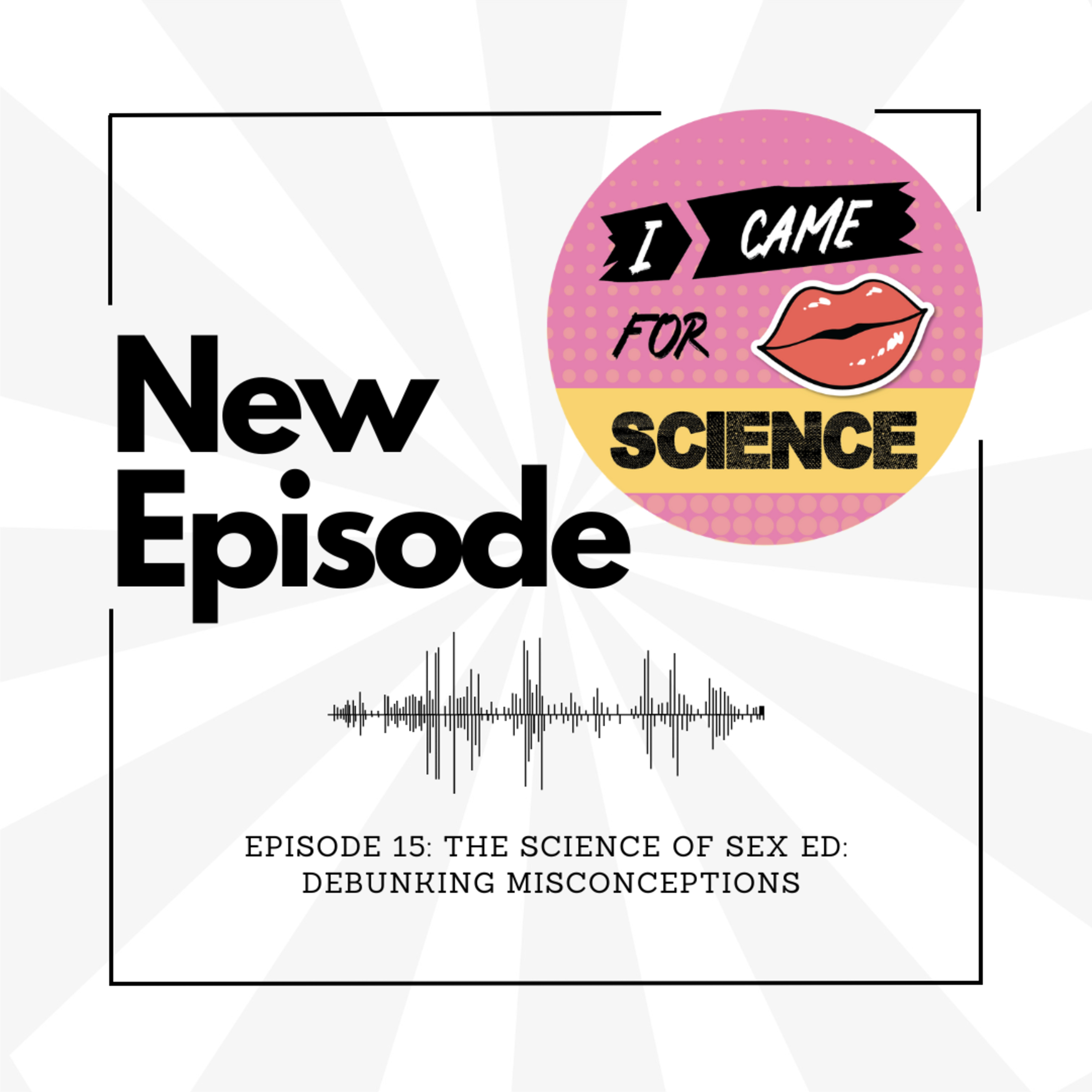
I Came For ScienceEpisode 15: The Science of Sex Education: Debunking MisconceptionsWelcome back to Season 3 of I Came For Science. If you are just joining us as a listener, we encourage you to listen back to Seasons 1 and 2 to hear our episodes on a range of topics including pubic hair, polyamory, spider sex, reproductive losses, and queer family building. Whether you like it or not, your children are going to learn about sex. Wouldn't it be good if they learn accurate information from a trusted adult? In this episode, we hear from Sarah Dahlston, senior director of education at Planned Parenthood of Southwest Ohio. Sarah explains...
2025-02-1933 min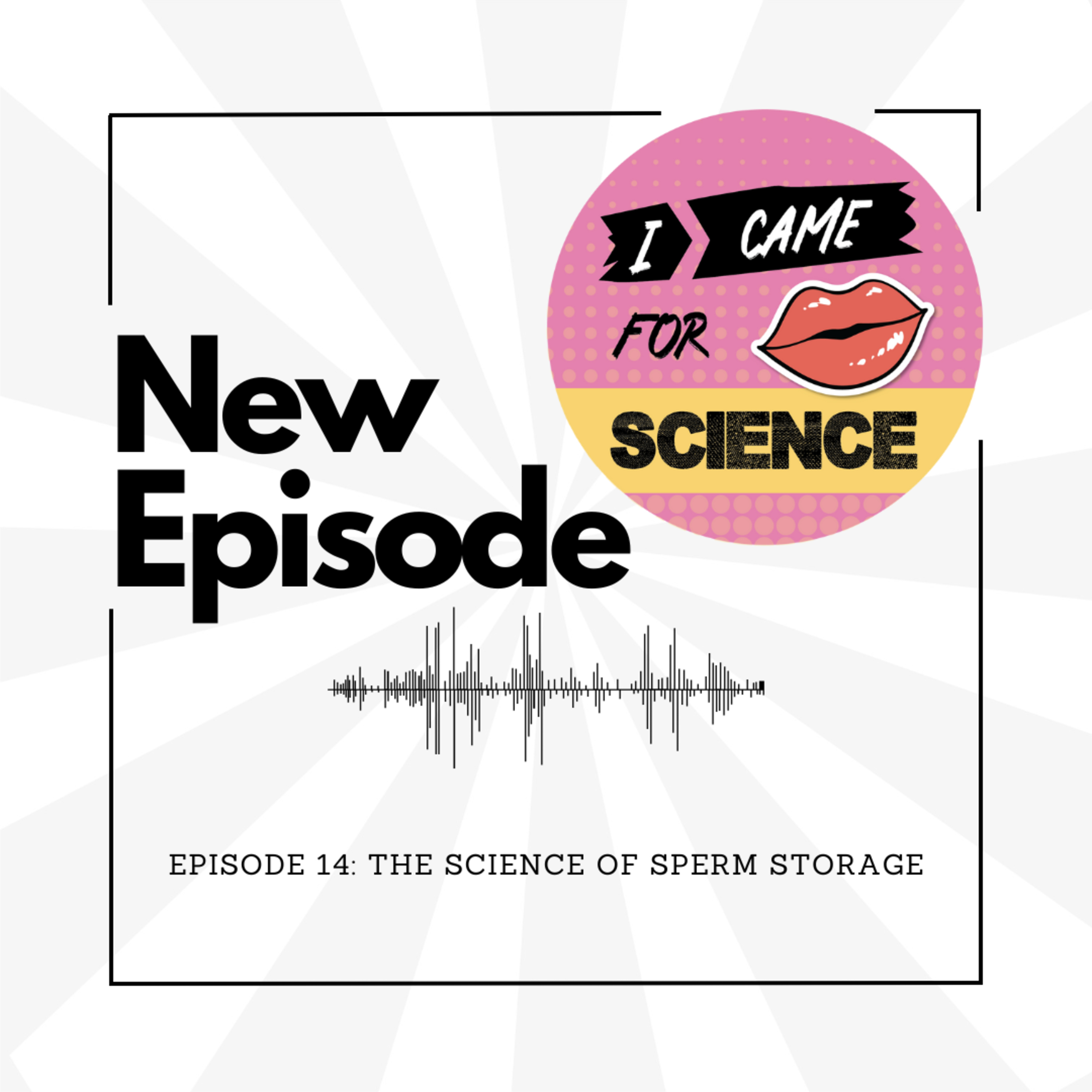
I Came For ScienceEpisode 14: The Science of Sperm StorageIn our final episode of Season 2, we explore the science of sperm storage. Sperm storage occurs when sperm viability is maintained outside of the male reproductive tract. This process happens, at least for some time period, naturally in all internally-conceiving animals. Sperm storage is also used by humans for assisted reproduction and fertility preservation. We learn about both processes through interviews with Dr. Teri Orr who studies bat reproduction and Matthew Hudnall who is the director of a sperm bank and a fertility preservation center.
2024-12-2446 min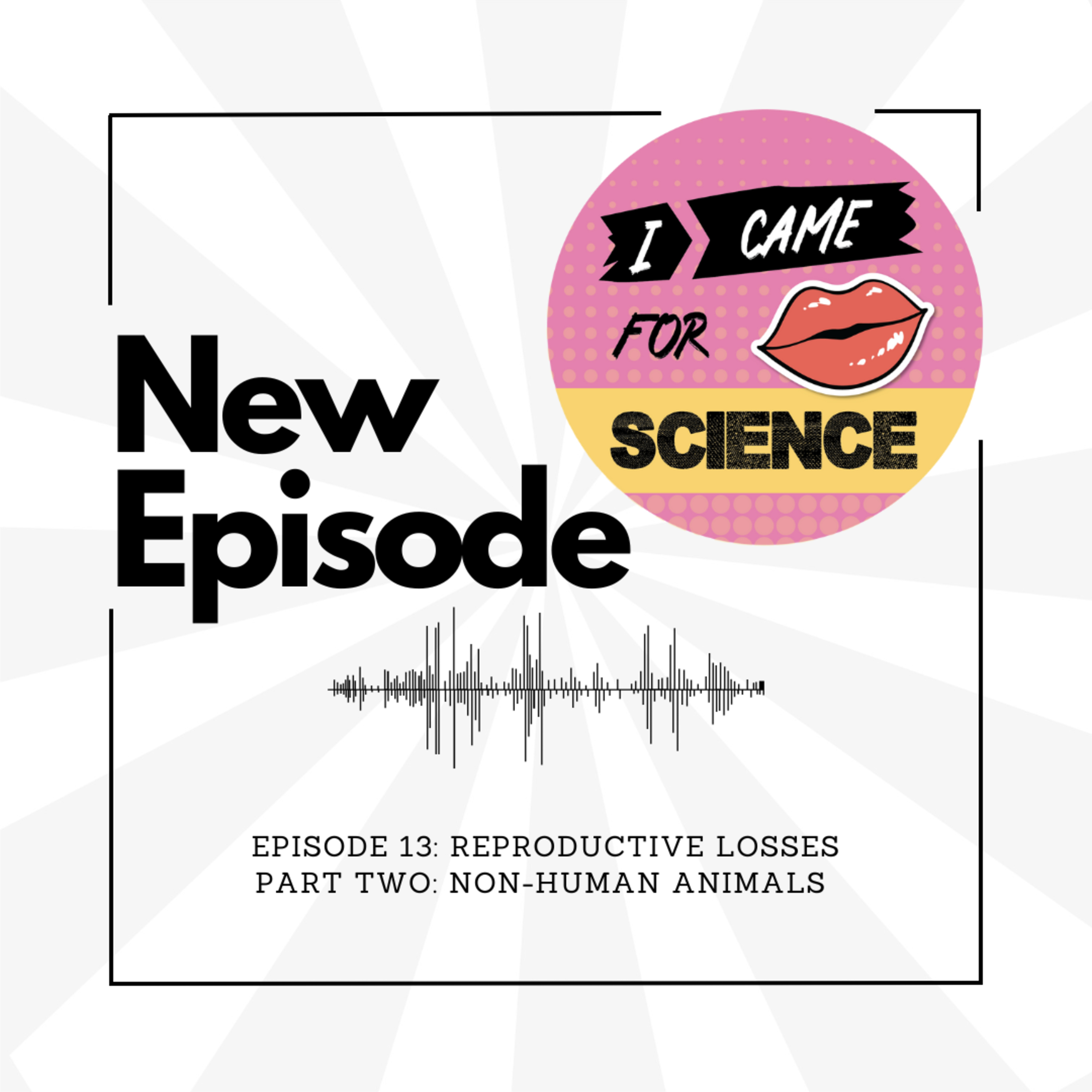
I Came For ScienceEpisode 13: Reproductive Losses Part 2: Non-human AnimalsThis episode follows up on Episode 12 which explored reproductive losses in humans. In this episode, Laura interviews primatologist and endocrinologist Dr. Jacinta Beehner about reproductive losses in non-human animals. Jacinta explores this topic through the lens of female reproductive strategies, using non-invasive techniques to track the reproductive physiology of wild primates.
2024-12-0429 min
I Came For ScienceEpisode 12: Reproductive Losses, Part 1: HumansThis episode follows up on our last episode about family building. In this episode, Laura talks with Dr. Christa Craven about reproductive losses, especially as they are experienced by people who are LGBTQ+. These losses come in a variety of forms and times during the family building process and can be impacted by environmental and social stresses. Laura and Christa also discuss how the causes of reproductive losses in humans relate to reproductive losses in non-human animals, which is the focus of our next episode.
2024-11-2032 min
I Came For ScienceEpisode 11: Queer Family Building
In this episode, Laura interviews Liam Kali a licensed midwife who is a pioneer in extending the practice of midwifery to queer families. Liam literally wrote the book about queer family building through conception. Liam describes their professional and personal journey becoming a parent, a doula, and a midwife, as well as the successes and challenges they faced along the way. Liam describes methods that queer people use to conceive. They also explain the problems that arise when queer people trying to conceive are treated with the same approaches that are used for people experiencing infertility.
2024-10-3135 min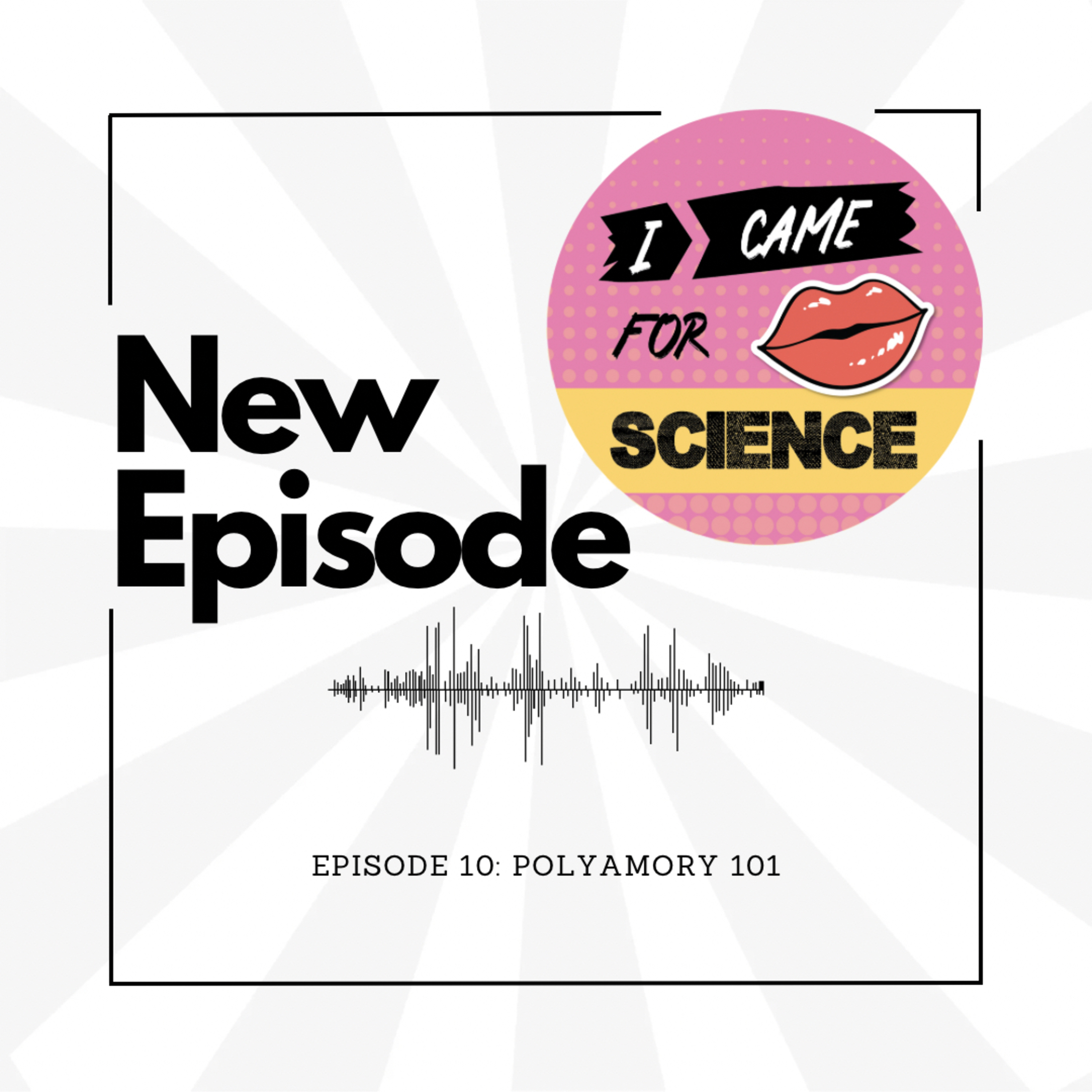
I Came For ScienceEpisode 10: Polyamory 101Are you curious about polyamory? If so, you’ve come to the right place. In this episode, Laura discusses scientific and personal aspects of polyamory with Amanda Anastasia Paniagua. Amanda is a graduate student in
higher education administration, with an interest in the science of polyamory. Amanda shares definitions and corrects common misconceptions about polyamory. Laura
and Amanda are then joined by Lee, Amanda’s non-marital partner, who shares his own experiences and perspectives about polyamory. Amanda and Lee also explain how being polyamorous intersects with other aspects of their identity.
2024-10-1342 min
I Came For ScienceEpisode 9: From politics to the Olympics: what people don't understand about the biology of sexThere has been a lot of talk this year about sex and gender. In this episode, Laura interviews Dr. Gita Kolluru who studies variation in sexual morphology and behavior across non-human animals. Dr. Kolluru explains the difference between sex and gender. Then, she explains the tremendous variation that occurs in sexual traits in humans and how this variation comes about.
2024-09-2634 min
I Came For ScienceEpisode 8: What to expect from a sexual assault evidence collectionWelcome back to Season 2 of I Came For Science. This episode is a follow-up to Episode 6 from Season 1 about the clearing of Ohio's backlog of sexual assault testing kits. In this episode, Laura interviews forensic nurse, Joey Compton, of Aultman Serenity Program about what survivors of sexual assault and their supporters need to know about sexual assault evidence collection.
2024-09-1136 min
Across the ClineEpisode 14: Do you smell...what's coming?We at Across the Cline and SciComm@UCR, would like to respectfully acknowledge and recognize our responsibility to the original and current caretakers of the land, water, and air on which we record this podcast: the Cahuilla, Tongva, Luiseño, and Serrano peoples and all of their ancestors and descendants, past, present, and future. This place is home to many Indigenous peoples from all over the world, including our colleagues, guests, and community, and we are grateful to have the opportunity to live and work on these homelands.
Can you smell it? We’ve concocted a fascinating for...
2024-06-151h 10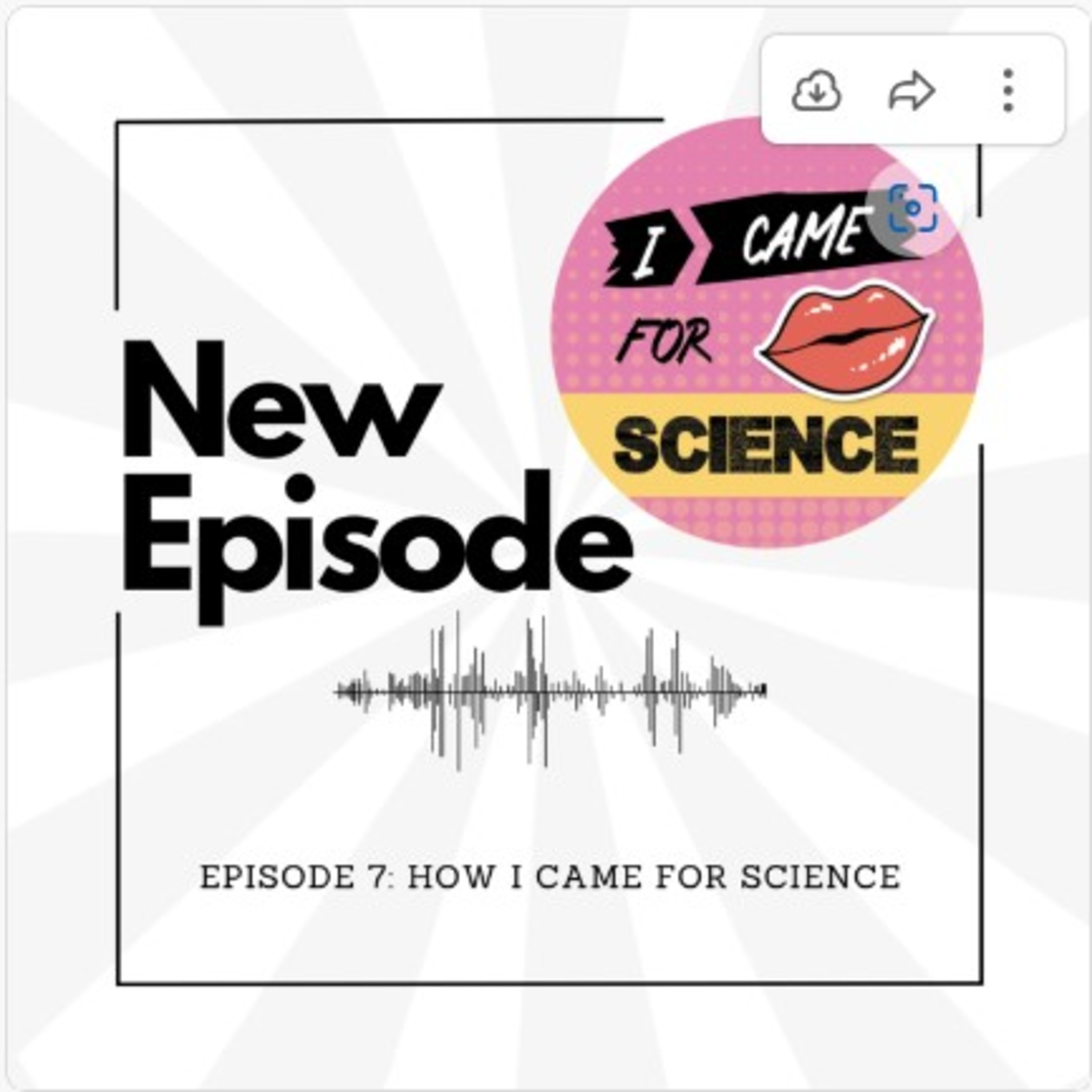
I Came For ScienceEpisode 7: How I Came For ScienceIn this last episode of Season 1, Laura is interviewed by her former student and current co-host, Natalia, about her winding journey of studying the science of sex and reproduction. They discuss Laura’s lows as she struggled with not feeling like she belonged as well as her highs as she realized her “outsider” status often made her ask questions that no one had thought to ask before. Natalia and Laura discuss how important it is to have people with different lived experiences contribute to scientific knowledge and end by encouraging everyone to come for science!
2024-05-0833 min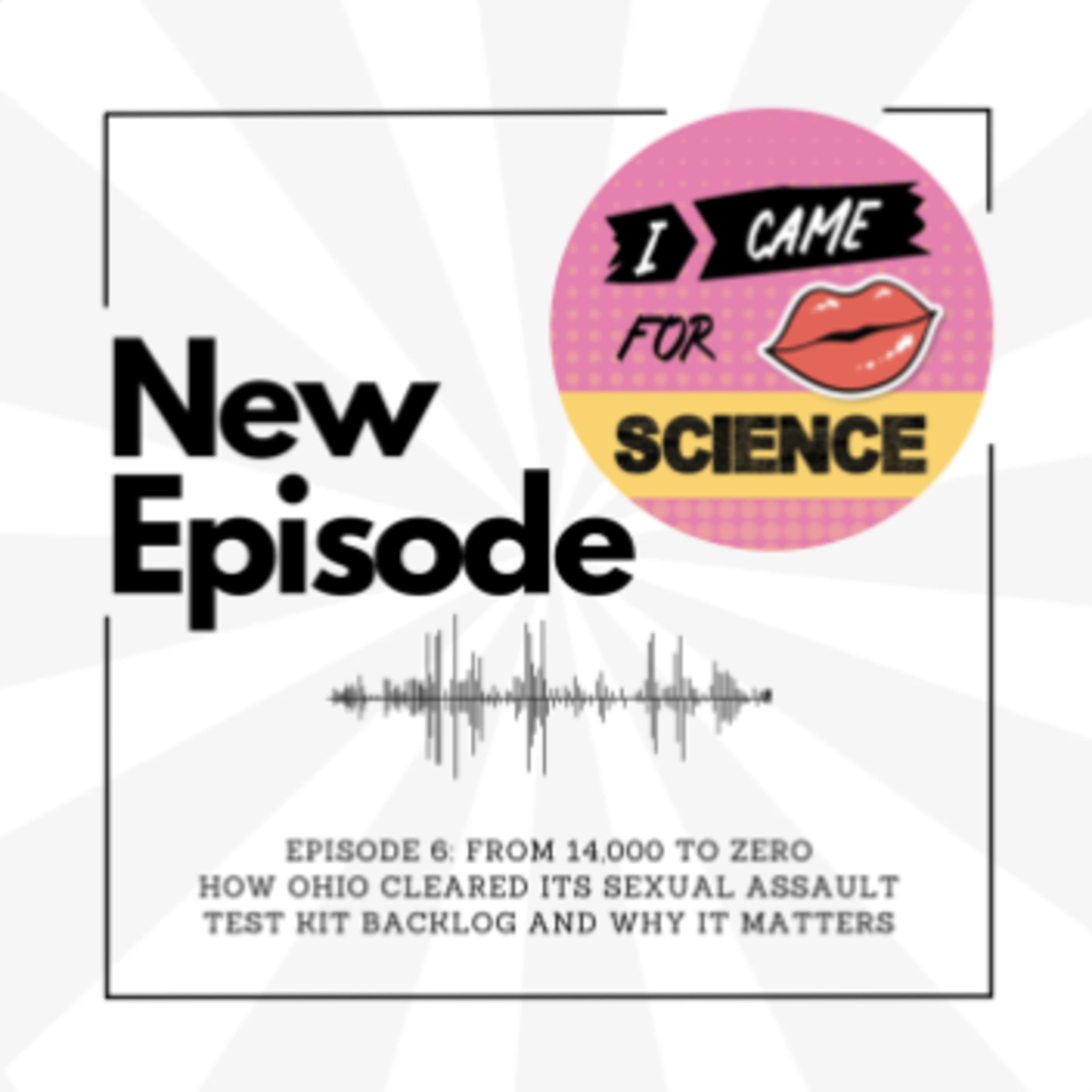
I Came For ScienceEpisode 6: From 14,000 to 0: How Ohio cleared its sexual assault test kit backlog and why it mattersImagine if you were sexually assaulted, decided to get evidence collected from your body, and then that evidence sat uninvestigated for decades. In 2010, this was the reality for about 14,000 victims of sexual assault in Ohio alone. In this episode, Laura interviews criminologist Dr. Rachel Lovell of Cleveland State University. They discuss how Ohio cleared the sexual assault test kit backlog over a five year period and how the results have been used to prosecute perpetrators in Cuyahoga County, becoming a role model for other parts of the country. In addition, Dr. Lovell shares how the results of these analyses...
2024-04-2336 min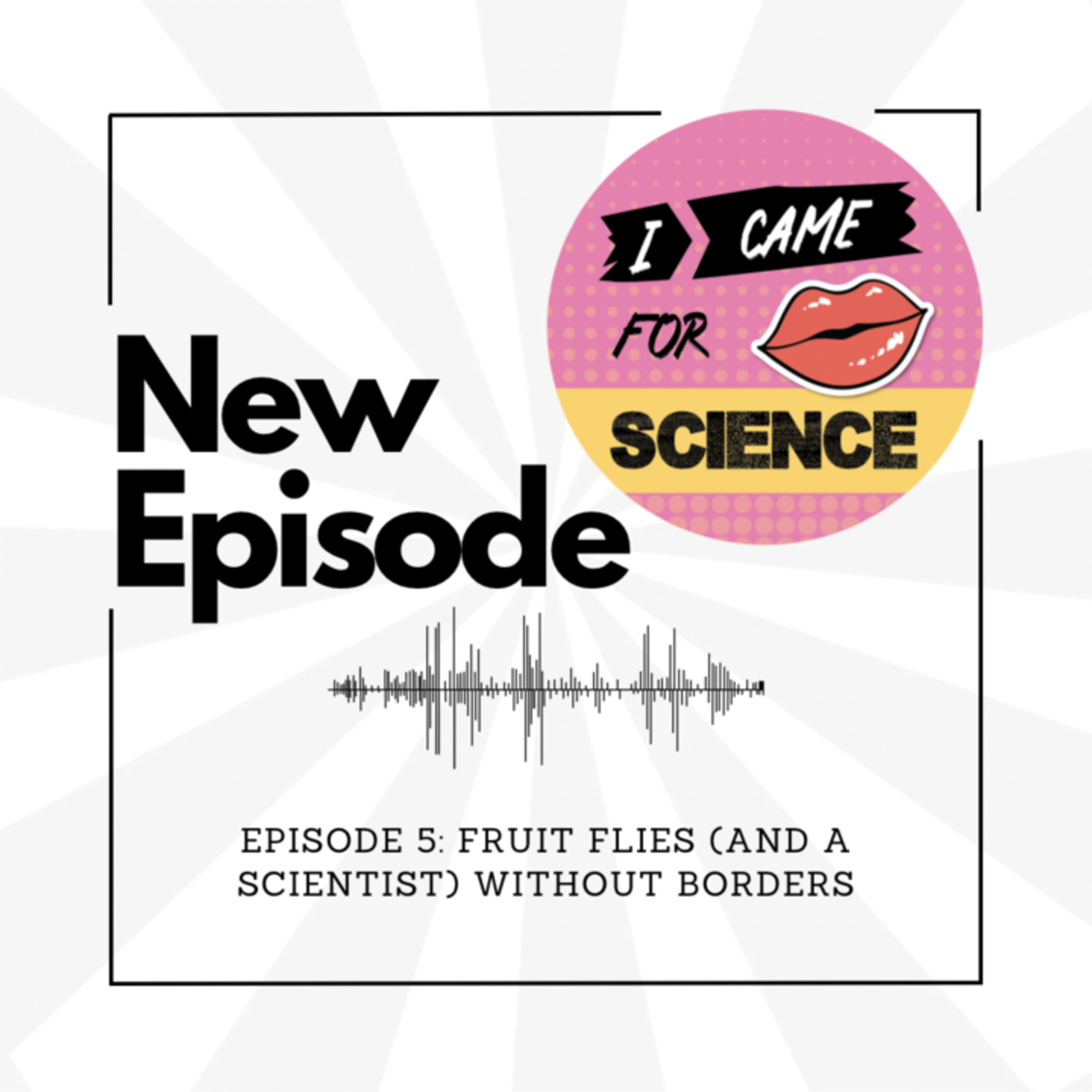
I Came For ScienceEpisode 5: Fruit flies (and a scientist) without bordersLaura talks with her colleague, Dr. Diana Pérez Staples, a research professor at the Universidad Veracruzana in Xalapa, Mexico, who has conducted research in six different countries on four different continents. Dr. Pérez Staples provides a cross-cultural perspective on the challenges and benefits of being a researcher in developing countries. She then discusses the importance that role models and words have on making aspiring scientists feel welcome or unwelcome in STEM.
2024-04-0930 min
I Came For ScienceEpisode 4: Spider Sex, Scientific Subjectivity, and Standing with SurvivorsThis is a powerful one. It is a discussion with your host, Laura Sirot, and her colleague, Eileen Hebets, who studies the reproductive behavior of arachnids. We talk about how our early life experiences influence our research questions, and the work Eileen is doing to support survivors of sexual assault. It demonstrates that one of the reasons it is important to have people with diverse lived experiences in science is that those experiences make them curious about questions that have never been asked.
2024-03-2634 min
I Came For ScienceEpisode 3: The Caramel Effect, X’s and O’s, and Other Insights for Mentorship in STEM
If you are a mentor or a mentee, this episode is for you! Laura talks with her mentor, Mariana Wolfner, who studies molecular and genetic mechanisms of reproduction in fruit flies. Mariana is a distinguished professor at Cornell University and a member of the National Academy of Sciences. We discuss Mariana’s journey through STEM, her emphasis on including diverse perspectives in approaching scientific questions, and the important role of kindness and mentorship in encouraging the next generation of scientists. You’ll even learn a new term: the caramel effect! The episode ends with a debrief between Laura and her...
2024-03-1331 min
I Came For ScienceEpisode 2: Prepping for PrEPPlease join us for a very special episode. It’s a story about one man’s decision to take the HIV pre-exposure prophylaxis, PrEP. But it is so much more. It is a story of love between a mother and son. It’s a coming out story. It’s a story about how trans-generational trauma can be turned into gratitude, resilience, and hope. It's a story about how the science of sex saves lives.
2024-02-2735 min
I Came For ScienceEpisode 1: Let's Talk About Pubic HairWelcome to I Came For Science: a show that explores all things sex, reproduction, and inclusion in STEM! Your host is Laura Sirot, a professor of Biology who has been studying animal sex for over 30 years. Join us as we normalize talking about the intersections of sex and science, as well as hearing about the lived experiences of the scientists that study it. To get in touch, email us at icameforscience@gmail.com or message us on X or Instagram @icameforscience.
In this week’s episode, we’re exploring pubic hair! Why we have it, common pubic hair...
2024-02-1432 min